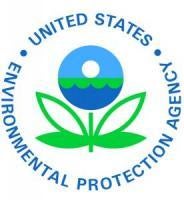WASHINGTON — The U.S. Environmental Protection Agency (EPA) and the U.S. Department of Justice announced that Coffeyville Resources Refining & Marketing (CRRM) has agreed to pay a civil penalty of more than $970,000 and invest more than $4.25 million on new pollution controls and $6.5 million in operating costs to resolve alleged violations of air, superfund and community right-to-know laws at its Coffeyville, Kan. refinery. The settlement will benefit the environment and human health by requiring new and upgraded pollution controls, more stringent emission limits, and more aggressive leak-detection and repair practices to reduce emissions from refinery equipment and process units. Sulfur dioxide (SO2) and nitrogen oxide (NOx), two pollutants emitted from refineries, can cause respiratory problems like asthma and are significant contributors to acid rain, smog and haze.
“The Clean Air Act is designed to protect people’s health from emissions of harmful pollutants,” said Cynthia Giles, assistant administrator of EPA’s Office of Enforcement and Compliance Assurance. “Today’s settlement will protect residents living near the facility and ensure that the necessary pollution controls are installed to protect the residents of southeastern Kansas in the future.”
“This settlement puts CRRM on a level playing field with the more than 100 petroleum refineries that have agreed to implement aggressive pollution control measures, thereby reducing the threats posed by harmful emissions to area residents,” said Ignacia S. Moreno, assistant attorney general for the Environment and Natural Resources Division of the Department of Justice. “The agreement reaffirms our commitment to ensure that the petroleum refining industry complies with the nation’s Clean Air Act.”
The settlement resolves alleged violations of the Clean Air Act (CAA), Comprehensive Environmental Response, Compensation, and Liability Act (CERCLA), and Emergency Planning and Community Right-to-Know Act (EPCRA). Coffeyville allegedly made modifications to its refinery that increased emissions without first obtaining pre-construction permits and installing required pollution control equipment. The CAA requires major sources of air pollution to obtain such permits before making changes that would result in a significant emissions increase of any pollutant. The settlement also resolves violations in which CRRM failed to timely notify state and local emergency responders of releases of hydrogen sulfide and sulfur dioxide from the refinery, as required by the CERCLA and EPCRA.
Once fully implemented, the pollution controls required by the settlement will annually reduce an estimated 200 tons of NOx emissions and more than 110 tons of SO2 emissions. The settlement will also reduce emissions of volatile organic compounds, particulate matter, carbon monoxide and other pollutants that affect air quality. CRRM has also agreed to perform a voluntary environmental project at the refinery valued at more than $1.2 million. The project will benefit the environment and surrounding communities by reducing emissions of volatile organic compounds and hydrogen sulfide, reducing the frequency of future acid gas flaring incidents, and conserve 15 million gallons of water each year that would previously have come from the Verdigris River.
The settlement with CRRM is the 30th under an EPA initiative to improve compliance among petroleum refiners and to reduce significant amounts of air pollution from refineries nationwide through comprehensive, company-wide settlements. The first of EPA’s settlements was reached in 2000, and with today’s settlement, 107 refineries operating in 32 states and territories – more than 90 percent of the total refining capacity in the United States – are under judicially enforceable agreements to significantly reduce emissions of pollutants. As a result of the settlement agreements, refiners have agreed to invest more than $6 billion in new pollution controls designed to reduce emissions of sulfur dioxide, nitrogen dioxide and other pollutants by more than 360,000 tons per year.
CRRM’s refinery has the capacity to refine more than 115,000 barrels of crude oil per day, producing gasoline, diesel fuels, and propane.
The State of Kansas has joined in the settlement and will receive a portion of the civil penalty.
The consent decree, lodged in the U.S. District Court for the District of Kansas, is subject to a 30-day public comment period and court approval.
More information on CRRM the settlement:
http://www.epa.gov/compliance/resources/cases/civil/caa/coffeyville.html
More information on other petroleum refinery settlements:
http://www.epa.gov/compliance/resources/cases/civil/caa/oil/index.html



 />i
/>i
